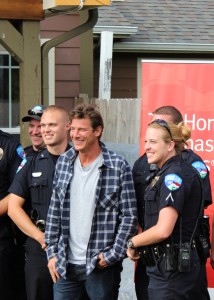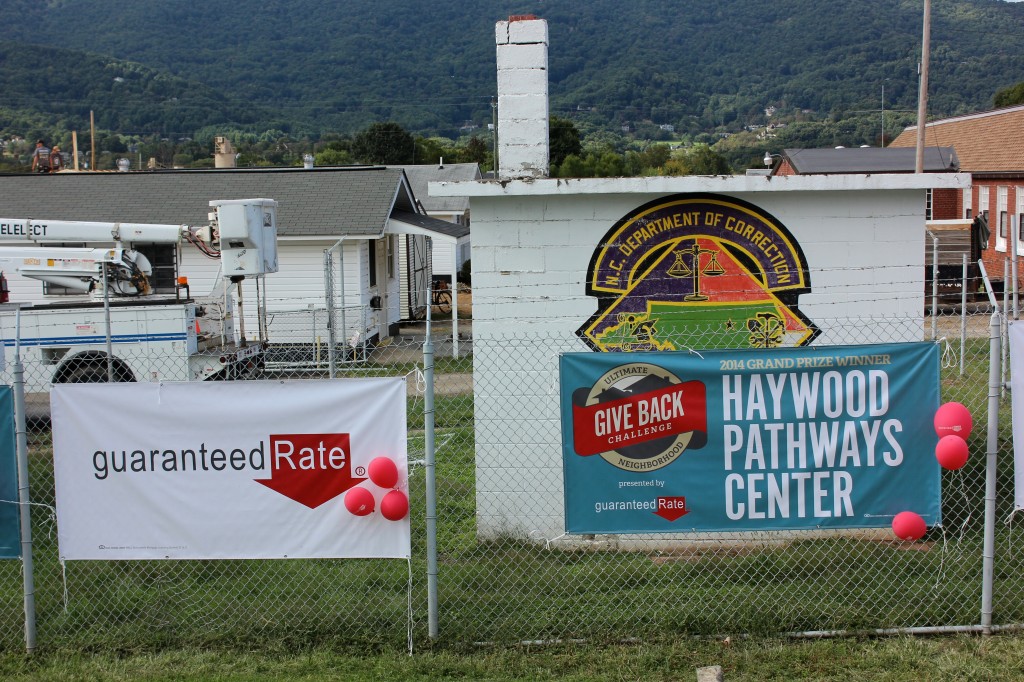Everyone who volunteers has a different reason for doing so, whether it’s to get credit for it in a class or because they believe in the organization that they’re volunteering for, but the reason that they volunteer doesn’t really matter in the end. What matters is that they are there and doing what needs to be done.
Lane Perry is the director of Western Carolina University’s Center for Service Learning and a lifelong volunteer. He wrote both his masters and doctoral dissertations on service learning, and has dedicated his teaching life to helping students learn the benefits of volunteering.
Volunteering, for him means getting to know yourself and finding the best version of who you can be,
“Volunteering is a way to balance, at least to me, what it means to be an expert at something. Knowledge is inherently an experientially-based phenomenon. A person can read about things happening in the world, adopt expert opinions, maybe even formulate their own opinion, but honestly, without some level of experience that helps make that information, data, or story real, I believe the true meaning is lost.”
He believes that, “For some, I feel like it truly is a call to make a difference. Sometimes in the world there are so many things going wrong that seem beyond our control and that we do not have a direct impact on… there is something about working diligently, locally, over an extended period of time, at least for me, that helps remind me that we can truly make a difference. I think some people have that sort of feeling and continually pursue the application of it.”
The project began when Haywood County Sheriff Greg Christopher found out that it wouldn’t be worth it to put more work into the prison to make more jail space, and he began to dream about what would happen if the space could be turned into a Next Step Ministry, which is a halfway house, a homeless shelter and a soup kitchen all in one plaza.
Shortly after that dream was brought to the table with representatives from across Haywood County – a variety of other non-profits in the area like the Open Door, and community members. The team began applying for grants and various programs. When they stumbled upon the Guaranteed Rate “Ultimate Neighborhood Giveback Challenge” they knew that it could be a great opportunity. Even though the competition had already begun, they decided to enter and began advertising the project on social media and all over western North Carolina. They ultimately won the challenge, which brought Ty Pennington, well known for his work on ‘Extreme Home Makeover’.

Ty Pennington and his team were brought in by Guaranteed Rate to begin construction.
Photo by Ceillie Simkiss
Perry thought that the project was “something everyone could rally behind and of course had heard about it. While Ty Pennington’s name, reputation, and cache brought with it a strong pull, I believe, I have to believe, that people truly want to lend a hand, not point a finger.”
Pastor Nick Honerkamp, face of the Haywood Pathways Center, thought that social media also helped to pull in members of the younger generation that aren’t always seen doing things around Haywood County. Perry, who was named the 2015 Civic Engagement “Emerging Leader” Professional of the Year by North Carolina Campus Compact, sees “every generation of college students as the ‘revivers,’ ‘reigniters,’ ‘rekindlers,’ ‘responders,’ and the ‘realizers’ of a future only dreamed by previous generations.”
Once the project was underway, a variety of experts volunteered their services. Dale Burris, director of facilities and maintenance for Haywood County, volunteered his services as a general contractor, taking over much of the work that had to be done. Dr. James and Julie Busbin, both professors of sales and marketing at WCU also volunteered their work on advertising the Haywood Pathways Center. WCU also brought more than 150 students to help with the grunt work of making the dormitories livable and friendly and raising money for the project.
The volunteering isn’t going to stop when the doors open on Nov. 1. They are also incorporating volunteer work into their homeless programs and their future plans.
There are three programs for their homeless shelter – the three-day program, the twenty-one day program, and the six-month program. Anyone can stay at the shelter for three nights, according to Honerkamp, but people who need more long term care can sign up for the twenty-one day program or the six-month program.
In the 21-day program, they are required to volunteer for at least 20 hours per week in addition to getting whatever they need to be able to get back on their feet. In the six-month program, they are required to volunteer 30 hours each week.
Honerkamp said, “There’s nothing more dehumanizing than saying “You have nothing to contribute.” We want to move them from being the person who receives the meal to the other side, where they start giving the meals and changing their identity.”
The Haywood Pathways Center opened the doors to their homeless shelter in Nov. 2014, but their soup kitchen opened up in Jan. 2015. The Center for Service Learning is working to bring in students from a variety of programs and get them integrated into helping by serving as mentors, bringing in ideas to give the Pathways Center a way to earn money and keep them financially sustainable throughout the years.
“’The only way to find yourself is to lose yourself in the service of others,’” Perry quoted Gandhi. “The best part about this quote is that the minute you find yourself, you realize there is so much more to know. In that sense, the service work, the life work we choose to pursue is the conduit to ultimately finding yourself. If you ever want butterflies or your ‘nerves’mograph to go off, flirt with that – truly knowing yourself, your beliefs, your worldview, yourself.”




